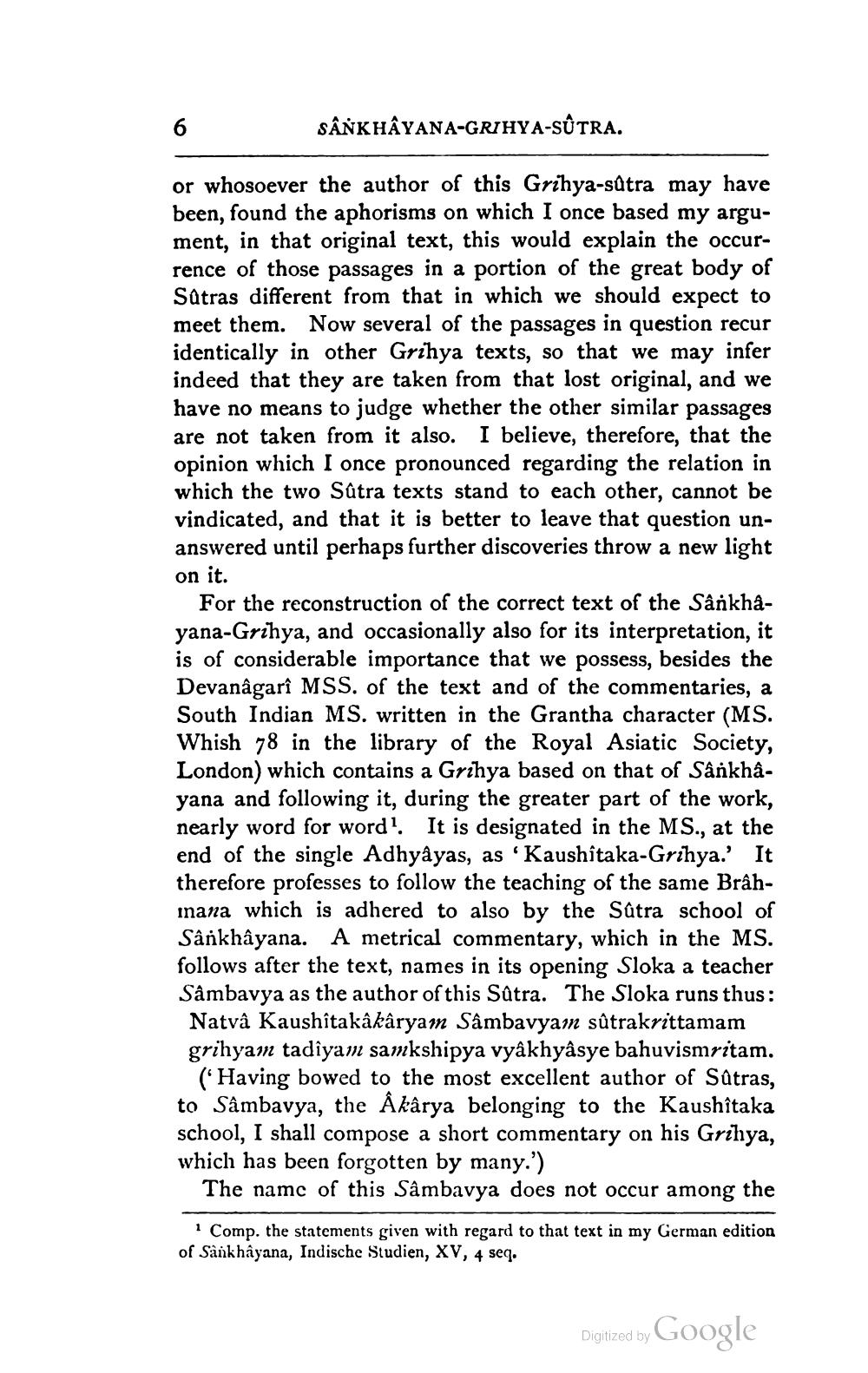________________
SÂNKHÂYANA-GRIHYA-SÛTRA.
or whosoever the author of this Grihya-sútra may have been, found the aphorisms on which I once based my argument, in that original text, this would explain the occurrence of those passages in a portion of the great body of Satras different from that in which we should expect to meet them. Now several of the passages in question recur identically in other Grihya texts, so that we may infer indeed that they are taken from that lost original, and we have no means to judge whether the other similar passages are not taken from it also. I believe, therefore, that the opinion which I once pronounced regarding the relation in which the two Sutra texts stand to each other, cannot be vindicated, and that it is better to leave that question unanswered until perhaps further discoveries throw a new light on it.
For the reconstruction of the correct text of the Sânkhåyana-Grihya, and occasionally also for its interpretation, it is of considerable importance that we possess, besides the Devanagarî MSS. of the text and of the commentaries, a South Indian MS. written in the Grantha character (MS. Whish 78 in the library of the Royal Asiatic Society, London) which contains a Grihya based on that of Sankhâu yana and following it, during the greater part of the work, nearly word for word'. It is designated in the MS., at the end of the single Adhyâyas, as 'Kaushîtaka-Grihya.' It therefore professes to follow the teaching of the same Brâhinana which is adhered to also by the Sûtra school of Sânkhâyana. A metrical commentary, which in the MS. follows after the text, names in its opening Sloka a teacher Sâmbavya as the author of this Sutra. The Sloka runs thus: Natvâ Kaushitakâkâryam Sâmbavyain sûtrakrittamam grihyam tadiyam samkshipya vyakhyâsye bahuvismritam.
('Having bowed to the most excellent author of Sûtras, to Sâmbavya, the Akârya belonging to the Kaushîtaka school, I shall compose a short commentary on his Grihya, which has been forgotten by many:')
The name of this Sâmbavya does not occur among the
1 Comp. the statements given with regard to that text in my German edition of Sankhâyana, Indische Studien, XV, 4 seq.
Digitized by Google




